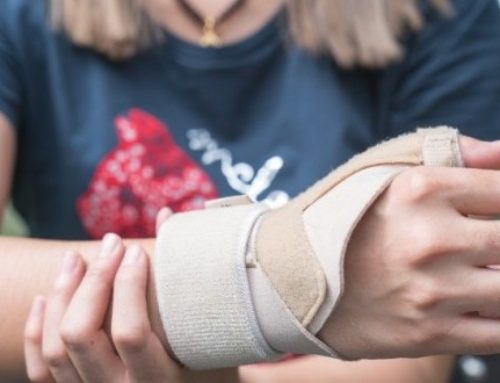Whether you’ve been involved in a car accident, a slip and fall incident, or are a victim of medical malpractice, a personal injury claim can be a lot to handle. The injury claim process takes deliberate steps that must be followed if you want to receive your personal injury benefits.
In Florida, the process for filing an injury claim involves – first and foremost – hiring a personal injury attorney. Eliciting the help of an experienced lawyer may seem like a daunting task, but your case will be handled more quickly and more efficiently with a law professional by your side.
At K Law, PLLC, we not only provide you with a guide for filing a personal injury claim, but we walk you through the step-by-step injury claim process. Alongside the aid of our attorneys, you’ll be directed on how injury claims work, how to settle your claim, and how long it will take to receive your compensation.
Hiring A Personal Injury Attorney
After receiving medical attention from your accident, the first step in the injury claim process is researching personal injury lawyers. It would be even more beneficial for your case if you contact an attorney right away while on the scene of your accident to ensure you gather all the proper documentation and evidence that you’ll need.

Most lawyers will be able to offer you a free consultation, which will provide you with invaluable information on what you need to do directly after your accident. In any case, they’ll evaluate the situation and give you viable options on what to do next for the injury claim process.
It’s also worth noting that most personal injury attorneys in Florida work on a contingency fee, meaning they only get paid if you do, and there are no upfront fees out of your own pocket. Hiring an attorney is a simple solution to a frustrating problem. Attorneys will handle most of the paperwork and scheduling when it comes to your personal injury claim, giving you leeway to focus on recovering from your injury.
How Long Does It Take to Settle A Personal Injury Claim?

Depending on how soon you contact a lawyer after the event of your injury, a personal injury claim can take anywhere from a couple of months to years to settle. It’s important to know, however, that you only have certain time frames in which you can file a lawsuit for your injury, and therefore it’s recommended you get in touch with a lawyer as soon as possible. Florida’s Statute of Limitations enforce strict deadlines in which you can file a lawsuit for an injury claim. In Florida, you have up to four years to file a personal injury lawsuit. After that, the window will be closed, and you’ll no longer be able to take your case to court.
The injury claim process involves several steps. After hiring a lawyer, they’ll help you gather evidence such as police and medical reports, witness statements, and expense sheets, all of which help to prove your case and determine an agreeable settlement amount.
How Do Personal Injury Claims Work?
Personal injury claims are issued when you, the plaintiff, are injured due to an oversight made by another party, the defendant. An injury claim can be issued if you were involved in any of the following types of accidents:
- Car Accident
- Dog Bite or Animal Attack
- Injury from Defective Products
- Medical Malpractice
- Pedestrian Accident
- Slip and Fall
Contact your insurance company right away to see if your injury is covered under medical insurance. You can also request that the defendant’s insurance pays for your injuries by sending a demand letter. What follows is the general injury claim process and how it works in Florida:
Step 1: The Demand Letter
This is the formal letter that you’ll send as the plaintiff to the paying insurance company. Your attorney will help outline this letter to include reasonability of cause of injury on the defendant’s behalf, your injuries and medical treatments involved to remedy your injuries, pain and suffering, wages lost, and more.

If the insurance denies your claim, it means that they’re refusing to pay for your injuries. They may also be offering a settlement amount that will not cover the cost of your expenses, which is also why an expense sheet should be included with the demand letter. An insurance company may decline your personal injury claim if they believe you’re at fault for the accident or for a lack of evidence. When this happens, your personal injury attorney will move the injury claim process forward by filing a complaint.
Step 2: Filing a Complaint
A complaint is issued to the Florida courts if your personal injury claim is denied, and the complaint is generally aimed towards an insurance company rather than the business or a private citizen, stating that you’re seeking compensation for your injuries as the plaintiff.

The complaint will include everything outlined in the initial demand letter, such as reasoning for seeking compensation, as well as documents and other forms of evidence to prove your claim. The complaint will state facts considering all parties involved and the court will issue jurisdiction over the case. The complaint will also ask for judgment considering the amount that you’re seeking for your injury claim.
Step 3: Discovery
This part of the Florida injury claim process relies heavily on your attorney’s investigation, and this is when they’ll collect evidence and documentation pertaining to your injury. Types of evidence should include:
- Insurance Claims
- Medical Bills
- Medical Records
- Photos/Video
- Police Reports
- Wages Lost/Time Off Work from Injury

All the formal information will be put together in what’s known as a deposition. A deposition is the process of giving sworn evidence and must be handled delicately and rigorously. Keep in mind that the defendant’s attorney will be putting together their own deposition to present to the court with facts and evidence that they gather, so it’s vital to work with your attorney during this step so that no information is overlooked. During discovery, both parties are eligible to file motions to the court to dismiss, delay, or agree to a settlement regarding your case.
Step 4: Settlement
Generally speaking, only four to five percent of personal injury claims actually go to trial, and the majority of claims are instead settled in pretrial. A settlement is usually arranged when a compensation package can be agreed upon by both parties, with the package including coverage for medical expenses accrued during the duration of your injury.
If you’re still seeking medical treatment for your injuries, it’s best to wait on your settlement to fully determine a reasonable cost to include in your compensation. However, this continuation could also result in going to trial.
Step 5: Trial

A judge or jury will hear from both parties during this stage of the injury claim process, and it will be your attorney’s duty to present liability on the defendant’s part and include they breached their duty of care to you. Duty of Care in Florida is determined by deciding whether the injury could have been predicted. If so, the defendant owed a Duty of Care and your injury is a direct breach of that duty. Your lawyer and the opposing attorney will both present causes, enforced with evidence and facts of the case.
Once closing arguments are made, the judge or jury will decide on a verdict. If they decide the defendant is not liable, your case will be dismissed, and you won’t receive compensation. On the other hand, if the defendant is found at fault for your injury, then the judge will issue a dollar amount for your compensation.
How Do I Settle A Personal Injury Claim?
Your Florida injury claim can be settled in one of two ways: a formal settlement or an informal settlement. In short, a formal settlement is decided in civil court where your attorney will prove negligence on the defendant’s part which resulted in your injury.
An informal settlement is settled out of court through negotiations between both parties, your attorney, and the insurers. Negotiations and counteroffers can also be made if you and your attorney don’t agree on the compensation offered by the defendant, which is a common route for personal injury claims.

Keep in mind that a formal settlement will take longer than the informal method. Generally, a formal settlement means the other party was unwilling to reach a monetary agreement, so the case will have to be settled in court, which takes more time to delegate depending on the court schedule. Furthermore, a settlement can take longer depending on the severity of your injuries. You’ll want to wait to reach an agreement for your claim until you have most (if not all) of your medical bills together so you and your lawyer can determine an appropriate amount for compensation.
How Long Does It Take to Get My Compensation?
In Florida, you should receive compensation within two weeks if you file an informal settlement. However, it can take longer as each situation is handled on a case-by-case basis.
For a formal court settlement, the defendant is expected to pay within 21 days of the order. If they don’t pay within that timeframe, your attorney can request further court proceedings to firmly demand compensation on your behalf.
Have You Been Hurt or Injured in Florida?
If you’re about to start the injury claim process, contact our lawyers at K. Law, PPLC. As personal injury attorneys, we believe in getting to know your case with a “hands-on” approach for the best results.
As your attorney, we’ll fight to ensure you’re properly compensated for your pain and suffering, and any other difficulties that arise because of the accident. Contact us today to know more about personal injury claims or want to get started with the claim process.
Offices available in Tampa, St. Petersburg, and Bradenton, FL for your convenience.








